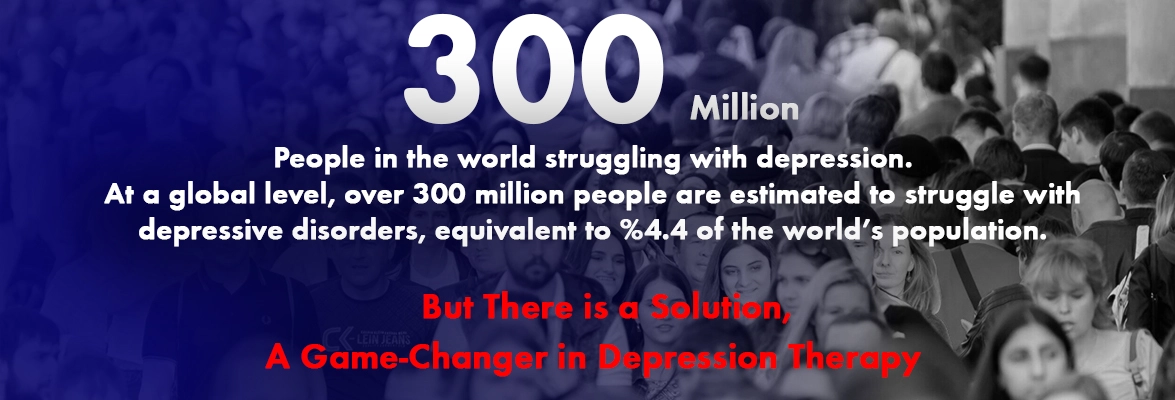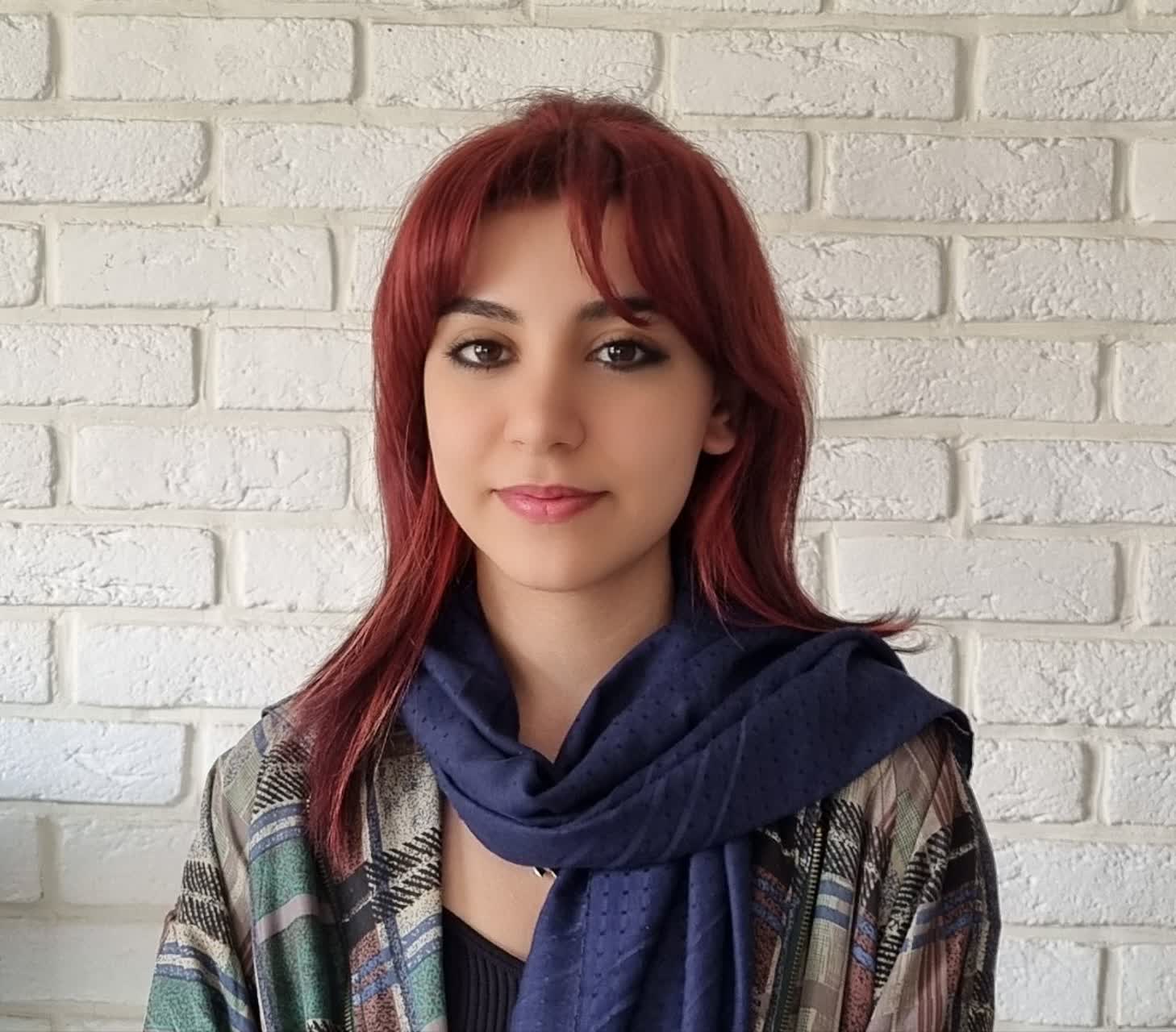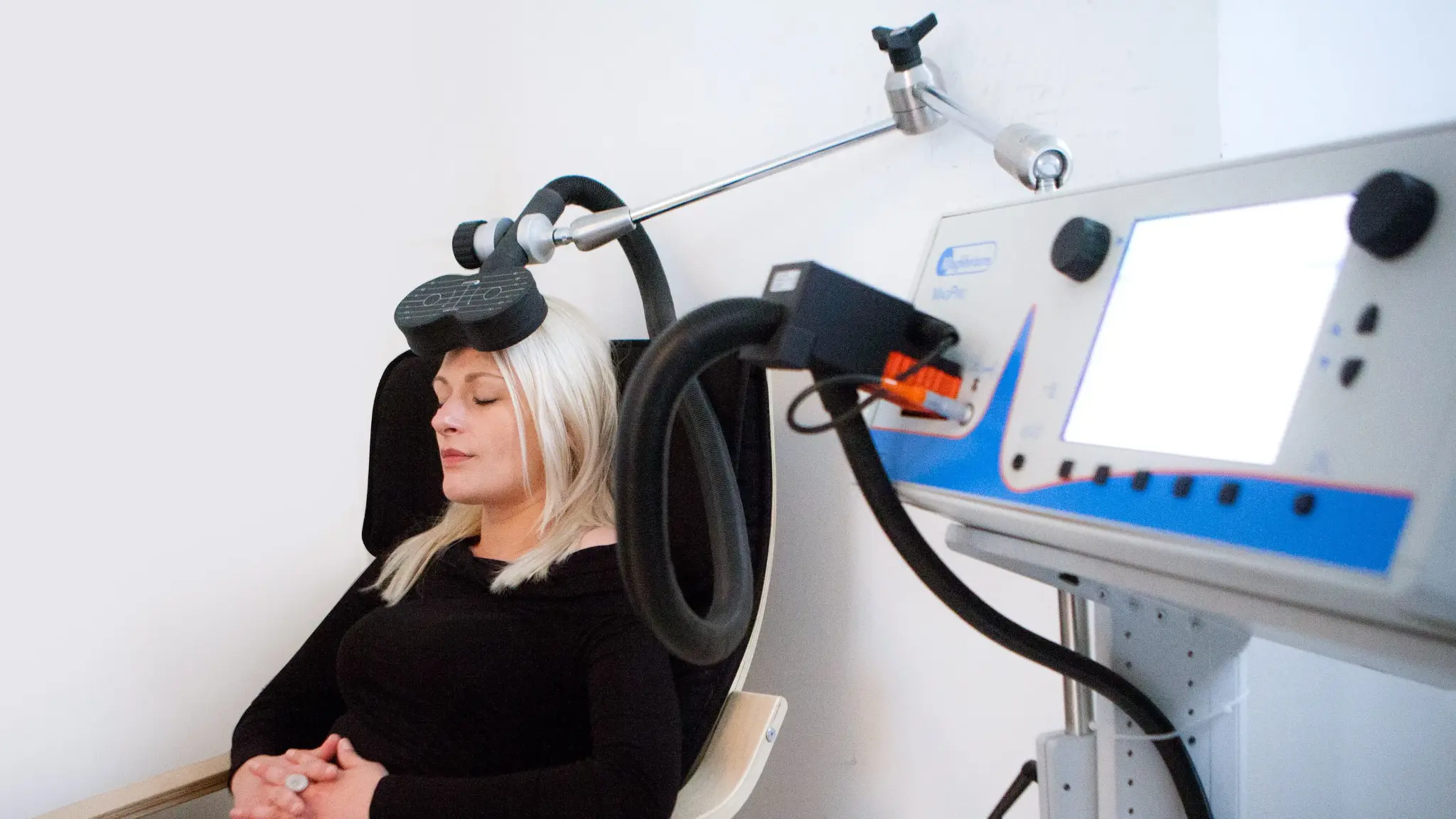

As technology advances, personalized treatments are becoming increasingly popular in all areas of healthcare. Precision can be applied to neuromodulation techniques, where specific brain stimulation therapies such as repetitive transcranial magnetic stimulation (TMS) can adjust brain circuitry and alleviate symptoms. While TMS is effective for treatment-resistant depression and other conditions, its current one-size-fits-all approach can lead to suboptimal responses. By optimizing different components of TMS to account for individual differences in brain function, we may be able to improve clinical outcomes.
Researchers at the University of Helsinki and Stanford have developed more precise methods that could help in the future development of personalized magnetic stimulation therapies for depression. Not all people with depression respond to medication. Two recent studies shed more light on alternative treatments such as transcranial magnetic stimulation (TMS). TMS, which is also used to treat obsessive-compulsive disorder (OCD) and migraines, is different from electroconvulsive therapy (ECT). This treatment is called “noninvasive” because it doesn’t involve surgery or cutting the skin.
Researchers from the University of Helsinki and Standford University investigated what factors influence the targeting of TMS on electrical brain responses. They studied the behavior of a specific electrophysiological marker. This marker could potentially be used in the future as a biological indicator to measure the effectiveness of TMS therapy, thus helping to target and individualize treatment. Johann Gogulski, a postdoctoral researcher at Stanford University, Helsinki and Alto, claims:
“Magnetic stimulation is an effective treatment for depression that does not respond to medication. However, currently, about half of these patients do not receive significant help from TMS. The biological marker we studied may help predict who will benefit from this treatment. We hope that in the future we will be able to tailor the treatment individually.
Individual optimization of magnetic stimulation is valuable. The first study focused on an electrophysiological marker that describes cortical excitability and sources of measurement error. The researchers studied healthy people to determine how targeted magnetic stimulation affected the prefrontal cortex. Gogulski says, “The results showed that targeting the coil to different parts of the prefrontal cortex significantly affected the quality of the electrical responses. In addition, we found evidence that individual optimization of the stimulation site and coil angle can further improve the quality of this metric. The second study used the same electrophysiological marker in the prefrontal cortex. This study showed that the most important factor affecting the validity of this method is the stimulation site. According to Gogulski, before we can develop a personalized TMS treatment, we need to ensure that the excitability of the prefrontal cortex can be measured as well as possible in individual patients. This will allow us to monitor the TMS treatment and see how it changes brain excitability. A biological marker can be used clinically.
Transcranial magnetic stimulation currently helps some people with depression, but researchers say the effectiveness of TMS treatment varies from person to person. A more precise method could improve results. There are many potential factors in TMS treatment that can be used for individualization, such as the stimulation site, the number and intensity of pulses, the stimulation intensity, and the number of treatment sessions. In addition, repetitive TMS is a non-invasive form of brain stimulation. Unlike vagus nerve stimulation or deep brain stimulation, TMS does not require the placement of electrodes. In addition, unlike electroconvulsive therapy (ECT), TMS doesn’t cause seizures or memory loss. It also doesn’t require anesthesia. In general, TMS treatment is considered safe and well-tolerated. However, it may cause some mild side effects that improve shortly after a session. These side effects may include
More research is needed to determine whether TMS may have long-term side effects.
According to Gogurski, what is remarkable about the new studies is that this systematic and accurate mapping of electrical responses in the prefrontal cortex and their reliability has not been done before. The researchers hope that in the future, the effectiveness of TMS treatment can be controlled by measuring the brain’s electrical responses during treatment. Based on these measurements, it may be possible to adjust the stimulation as needed, even during treatment. The results of both studies will be used in the future to design individualized brain stimulation therapies based on electrical biomarkers. However, more research is needed before new treatments can be implemented.

Opening Hours:
24/7
Address: Tradex Mena International Consulting Group L.L.C-FZ 6th Floor, Business Center, The Meydan Hotel Grandstand, Meydan Road, Nad Al Sheba, Dubai, United Arab Emirates
+971 50 240 9735
Address: TRADEX INTERNATIONAL CONSULTING DANIŞMANLIK
itH. iHr. ve TiC. LTD. ŞTi.
Tomtom Mah. istiklal Cad. Beyoğlu iş Merkezi No.187 iç Kapr No: 4 Beyoğlu/iSTANBUL Beyoğlu V.D. 8591125255
“Depression Therapy”. Thanks for sharing these helpful articles.
I found this article about depression therapy very interesting and informative!
I found the new and classic methods being shared about depression therapy to be very enlightening and helpful. It underscores the necessity of advancing treatments to better address this pervasive mental health challenge, stressing the need for continued research and innovation to improve patient outcomes and overall well-being.